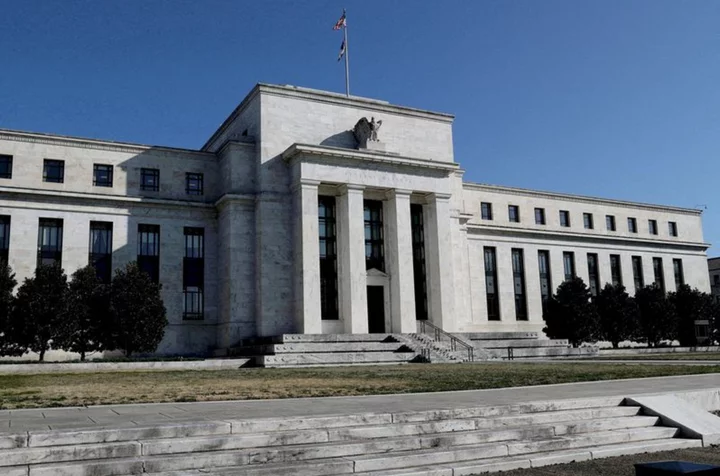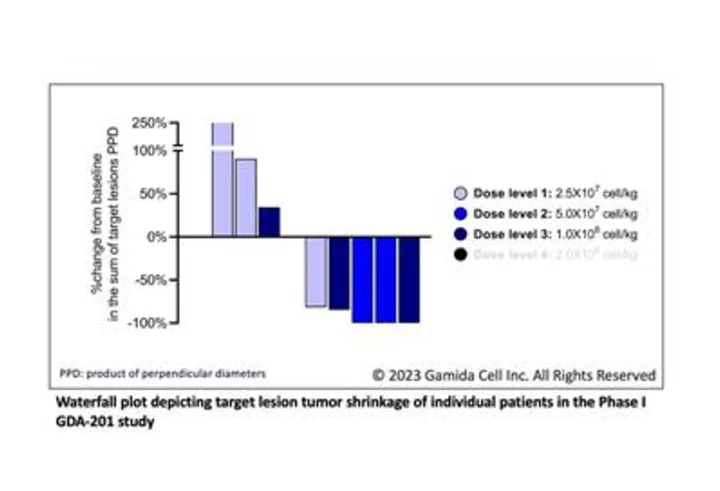Fitch Ratings is defending its controversial decision to downgrade the US credit rating by pointing to the nation's mountain of debt.
"The numbers speak for themselves," Richard Francis, the lead analyst on US sovereign ratings at Fitch, told CNN in an interview on Wednesday. America's debt makes up 113% (and growing) of its economic output, which Francis called "clearly pretty alarming."
Francis, who leads the committee that decided to remove America's perfect credit rating, expressed concern about large and growing fiscal deficits and the mounting cost to finance US debt as interest rates rise.
Within minutes of Fitch's downgrade on Tuesday evening, the White House, Treasury Department and some leading economists slammed the move. Treasury Secretary Janet Yellen described the downgrade as "arbitrary and based on outdated data," noting progress in many of the indicators Fitch relies on.
Former Obama economic adviser Jason Furman called the downgrade "completely absurd," and famed economist Larry Summers described it as "bizarre and inept," noting the move comes just as the US economy looks stronger than anticipated.
In response, Francis said Fitch based the decision on much broader forces than the trajectory of the economy over the next few months.
Whether America slips into a mild recession or narrowly avoids one "just doesn't move the needle," Francis told CNN.
'The center's fallen apart'
Beyond the fiscal mess, Fitch is growing increasingly worried about the political situation in the world's largest economy.
"We do feel like governance has deteriorated steadily over the last 20 years," Francis said. "Because of that, we have less confidence that the government can tackle these fiscal challenges."
Those challenges include addressing long-term issues surrounding Social Security and Medicare -- problems that may require politically unpopular moves and compromises. Francis noted that the nonpartisan Congressional Budget Office projects that the Social Security fund will be depleted by 2033.
Francis expressed alarm at the "political polarization on both sides" of the aisle.
"Democrats have moved left. Republicans have certainly moved right. And the center's fallen apart. That just makes making difficult decisions very, very difficult and challenging," Francis said. "We see very low appetite for really tackling these fiscal challenges."
The January 6th factor
Asked about the role the January 6th insurrection played in Fitch's downgrade decision, Francis said it didn't factor in "too much."
"It was just a very clear indicator of the political polarization and deterioration in governance overall," he said, adding that repeated debt ceiling standoffs are another indicator.
As CNN previously reported, Francis confirmed that Fitch did mention January 6th as a concern in discussions with US officials about a potential downgrade.
Fitch announced its downgrade decision at nearly the same moment that former President Donald Trump was indicted Tuesday evening related to efforts to overturn the 2020 election.
Francis said the timing was "purely a coincidence," noting that the Fitch committee made the decision to downgrade the day before.
However, Francis agreed that the timing turned out to be fitting given Fitch's concerns about the state of governance in America.
The downgrade has quickly become a political issue, with Democrats blaming Republicans, and vice versa.
Asked if either party is more at fault for America's fiscal problems, Francis indicated there's more than enough blame to go around.
"There are definitely fiscal issues that have been done by both parties," he said. "The Trump tax cuts obviously significantly impacted revenues in the past few years. The spending initiatives by the Biden administration have been perhaps needed but also costly."









